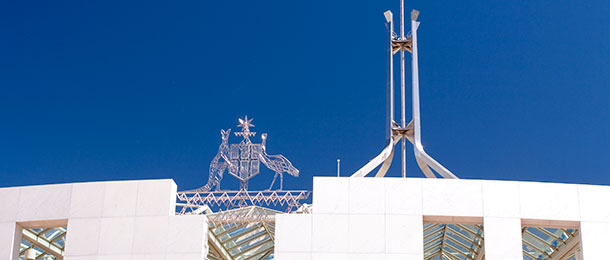A bill to enshrine the first stream of recommendations from the Quality of Advice Review (QAR) has been tabled in parliament, including a provision enabling superannuation fund members to use money from their accounts to cover the costs of personal financial advice.
The Treasury Laws Amendment (Delivering Better Financial Outcomes and Other Measures) Bill 2024 was tabled in the House of Representatives and implements the government’s response to recommendations 7, 8, 10, 13.1 to 13.5 and 13.7 to 13.9 of the QAR.
Specifically, the bill repeals and replaces section 99FA of the Superannuation Industry (Supervision) Act 1993 and amends sections of Income Tax Assessment Act 1997 to provide a legal basis for the payment of advice fees from superannuation entitlements.
“The Treasury Laws Amendment (Delivering Better Financial Outcomes and Other Measures) Bill 2024 implements reforms which reduce unnecessary red tape that adds to the time and cost of preparing financial advice,” Assistant Treasurer and Financial Services Minister Stephen Jones explained.
“The amendments will support Australians to access the advice they need to achieve a dignified retirement by making clear in the law that Australians can use their superannuation accounts to pay for financial advice about their superannuation. It does not expand the scope of fees which can be charged to superannuation accounts.”
Schedule 1 of the proposed bill also amends the Corporations Act 2001 to streamline ongoing advice fee renewal and consent requirements into a single form, simplifies the rules banning conflicted remuneration and introduces new consumer consent requirements for insurance products that have a commission payment.
While welcoming the introduction of the bill, the Financial Services Council (FSC) expressed concerns regarding the remaining requirement for both financial advisers and superannuation trustees to approve advice fee deductions from superannuation accounts.
“Industry encourages the Assistant Treasurer to make the most of the opportunity to remove onerous duplication and red tape that has contributed to advice becoming unaffordable for millions of Australian consumers,” FSC chief executive Blake Briggs noted.
“We support the government’s aim of ensuring more Australians can access financial advice through their superannuation, but despite the many positives in the bill we are concerned that it will entrench unnecessary obligations on superannuation trustees that would be costly to maintain and act against the delivery of affordable financial advice.
“The FSC encourages the government to continue to consult through parliamentary processes to address industry’s concerns and to ensure financial advice is more affordable for Australian consumers.”
The Financial Advice Association Australia (FAAA) also welcomed the development but echoed the concerns over super fund trustee involvement in the tax treatment of advice fees.
“We have a strong concern with respect to the requirements for super fund trustees processing financial advice fees. This legislation places specific obligations on them before advice fees can be paid (under a new sub-section, 99FA, of the Corporations Act). There is no clarity as to how these obligations will be met by trustees,” FAAA chief executive Sarah Abood said.
“The risk we see is that this could cause significant extra work for financial advisers who may be asked to provide additional specific documentation, such as Statements of Advice and invoices. This will also require onerous processing by trustees,” she added.
Further the FAAA questioned how advisers would maintain client privacy and data protection when trustees require information under the framework.
Treasury stated further legislation will be developed in 2024 to implement the remaining elements of the delivering better financial outcomes package.




